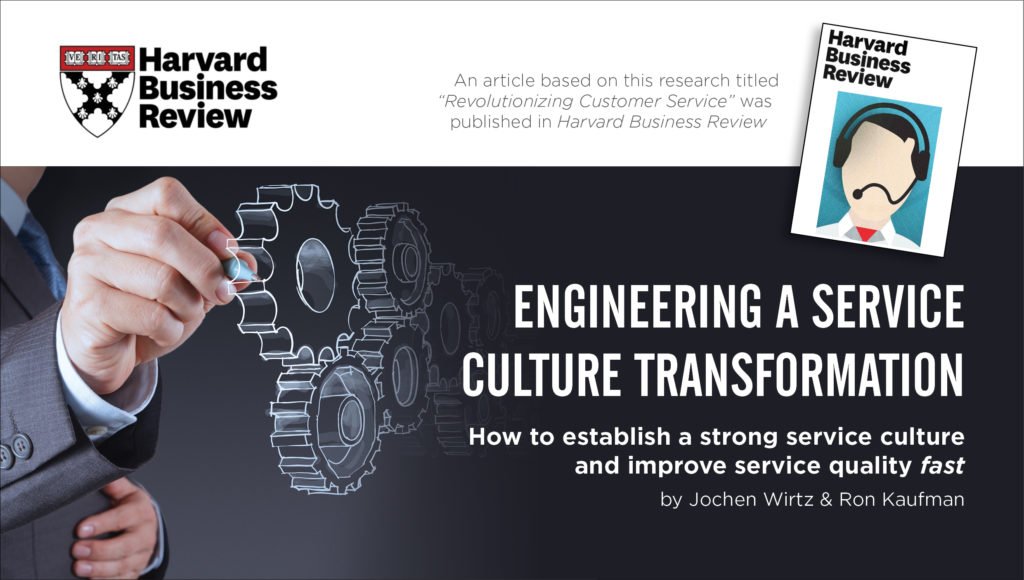
Our team at Uplifting Service have been working with Professor Jochen Wirtz on this topic for many years and are happy to report that the April issue of Harvard Business Review picked up our ideas and published a short piece in the Idea Watch section. In this post, we add insights for service leaders and practitioners who would like to know more.
Key Message: Traditional approaches to service improvement often don’t work. They are fragmented, incremental, and based on faulty assumptions about the true nature of service. Companies try these approaches again and again, and while they may enjoy temporary surges of improvement, people run out of steam and the improvement dies. Instead, many companies would benefit from a more dramatic service revolution that quickly rebuilds their culture around the vision of taking action to create new or greater value for others.
There is a better way to build a culture that quickly and dramatically improves customer service. While many people think changing an organization’s culture takes a long time, we have had the opportunity to experiment and observe a wide variety of companies for the past 25 years. We have been part of many innovations and successes. In the process, we observed four common mistakes companies make when implementing service revolutions, and we propose a more effective and proven way to make sure a service revolution sticks and achieves sustainable service improvements. They are:
Rule #1: Don’t start with customer-facing employees. Instead, involve everyone, with a special focus on internal service providers.
Rule #2: Don’t start by training people on specific service skills, scripts and procedures. Instead, educate them first to a better understanding of what service excellence really means.
Rule #3: Don’t pilot the change. Instead, go big and go fast to build momentum for the new culture.
Rule #4: Don’t focus on traditional KPIs during the service revolution (such as satisfaction, NPS, operational measures, and sales). Instead, focus on leading “revolution indicators” (i.e., ideas generated and ideas implemented) to generate value-adding ideas and new service actions.
To learn more read the White Paper “Engineering a Service Revolution: How to build a service culture and improve service quality fast.”
If you have comments on this topic, please contact me at https://ronkaufman.com/contact or Professor Wirtz at [email protected]. We’d love to hear from you.



